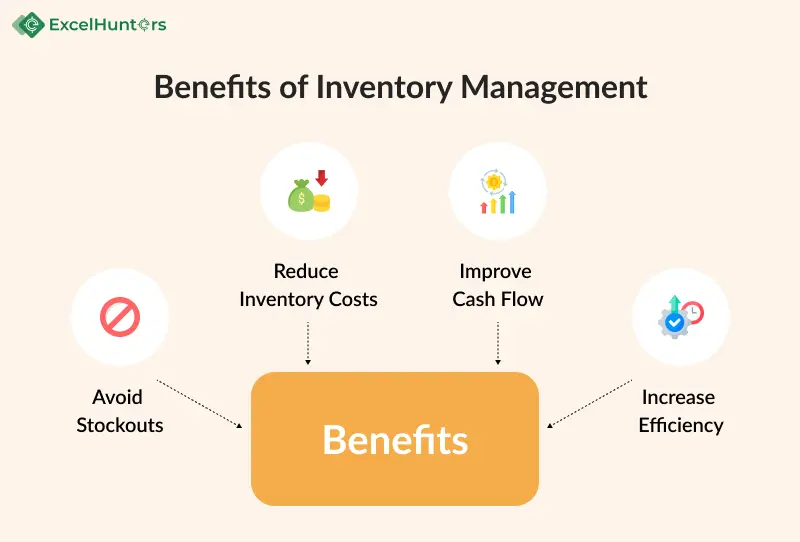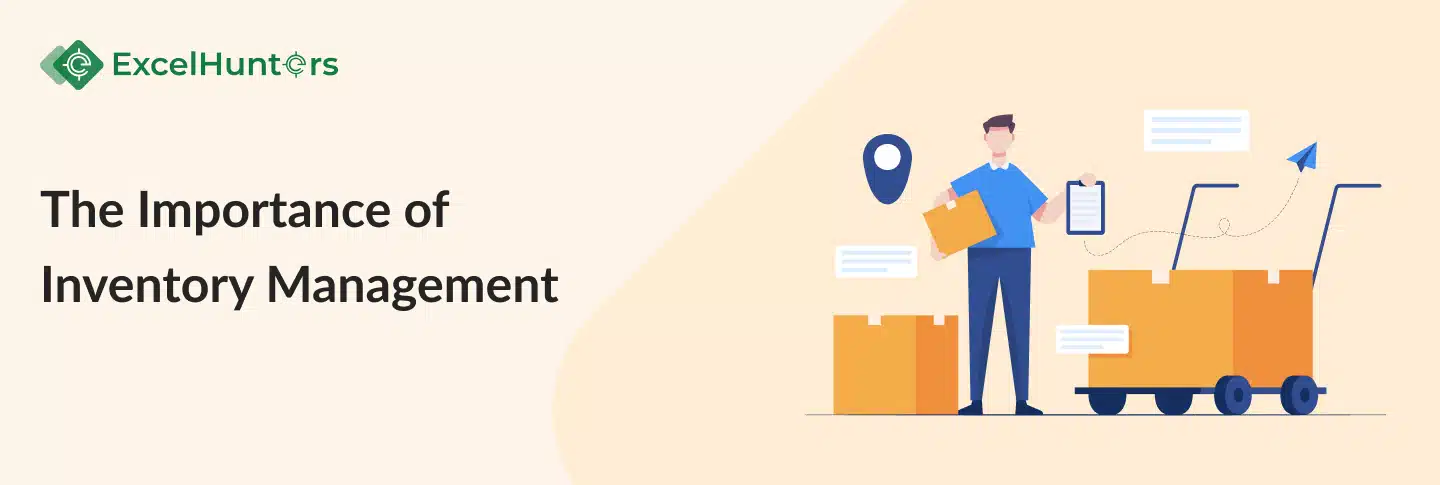The Importance of Inventory Management: How It Impacts Your Business
What is Inventory Management?
Before we delve into the importance of inventory management, let’s define what it is. Inventory management is the practice of overseeing the ordering, storage, and use of a company’s inventory. This includes managing inventory levels, tracking inventory movements, and forecasting future inventory needs. Effective inventory management helps businesses to avoid stockouts, reduce inventory costs, and improve cash flow.
Benefits of Inventory Management
Here are some of the key benefits of effective inventory management:

1. Avoid Stockouts
One of the primary benefits of inventory management is that it helps you to avoid stockouts. When you have accurate information about your inventory levels, you can ensure that you always have the right products on hand to meet customer demand. This helps to prevent lost sales and customer dissatisfaction.
2. Reduce Inventory Costs
Effective inventory management can also help you to reduce your inventory costs. By optimizing your inventory levels, you can avoid overstocking, which ties up valuable cash and storage space. You can also avoid understocking, which leads to rush orders and increased costs.
3. Improve Cash Flow
Inventory management can also help you to improve your cash flow. By avoiding overstocking and understocking, you can ensure that you have the right amount of inventory on hand to meet customer demand, without tying up excess cash in inventory.
4. Increase Efficiency
Effective inventory management can also increase the efficiency of your business operations. By streamlining your inventory processes, you can reduce the amount of time and resources needed to manage your inventory, freeing up time and resources to focus on other areas of your business.
Consequences of Poor Inventory Management
On the flip side, poor inventory management can have serious consequences for your business. Here are some of the potential risks:
1. Stockouts
When you don’t have accurate information about your inventory levels, you run the risk of running out of stock when customers want to buy. This can lead to lost sales, customer dissatisfaction, and damage to your brand reputation.
2. Overstocking
Overstocking is the opposite of understocking, and it can also be a problem. When you have too much inventory on hand, you tie up valuable cash and storage space that could be used for other purposes.
3. Higher Costs
Poor inventory management can also lead to higher costs. Rush orders, emergency shipments, and excess inventory can all increase your costs and reduce your profit margins.
4. Reduced Efficiency
When your inventory management processes are inefficient, it can take more time and resources to manage your inventory, reducing efficiency and increasing costs.
How to Optimize Your Inventory Management Processes
Now that we’ve covered the importance of inventory management, let’s explore some tips for optimizing your inventory management processes:
1. Use Inventory Management Software
Inventory management software can help you to streamline your inventory management processes and provide you with real-time data on your inventory levels, sales trends, and other important metrics.
2. Adopt Just-in-Time (JIT) Inventory Management
Just-in-Time (JIT) inventory management is a strategy that involves keeping inventory levels as low as possible, while still ensuring that you have enough inventory on hand to meet customer demand. By adopting a JIT strategy, you can reduce the amount of inventory you need to store, which can help to free up cash and storage space.
3. Implement an ABC Analysis
An ABC analysis is a method of categorizing inventory based on its value. Items that are high in value and low in quantity are categorized as A items, while items that are low in value and high in quantity are categorized as C items. By focusing on managing A items more closely, you can ensure that you have the right inventory on hand to meet customer demand, without tying up excess cash in inventory.
4. Forecast Demand Accurately
Accurately forecasting demand is critical for effective inventory management. By understanding your sales trends, you can ensure that you have the right products on hand to meet customer demand, without tying up excess cash in inventory.
5. Implement a Reorder Point System
A reorder point system is a method of determining when to reorder inventory. By setting a reorder point for each item, you can ensure that you order more inventory when levels fall below a certain threshold.
6. Conduct Regular Audits
Regular inventory audits can help you to identify discrepancies between your inventory records and your actual inventory levels. By conducting regular audits, you can ensure that your inventory records are accurate, and that you have the right amount of inventory on hand to meet customer demand.
Conclusion
Effective inventory management is critical for the success of any business that sells products. By implementing the tips outlined in this article, you can optimize your inventory management processes, reduce costs, improve cash flow, and increase efficiency. By taking the time to understand your inventory needs and implement best practices, you can ensure that you have the right products on hand to meet customer demand, without tying up excess cash and storage space.
If you’re ready to take your inventory management processes to the next level, contact Excelhunters today. Our team of experts is ready to work with you to understand your unique inventory needs and develop customized solutions to help you achieve your goals. Contact us now to schedule a consultation and learn more about how we can help your business succeed.
Looking for
Consultations?Our Expertise
- 8 + years of experience
- Adept Developers
- Excel at Agile Development
- Cost-Effective


